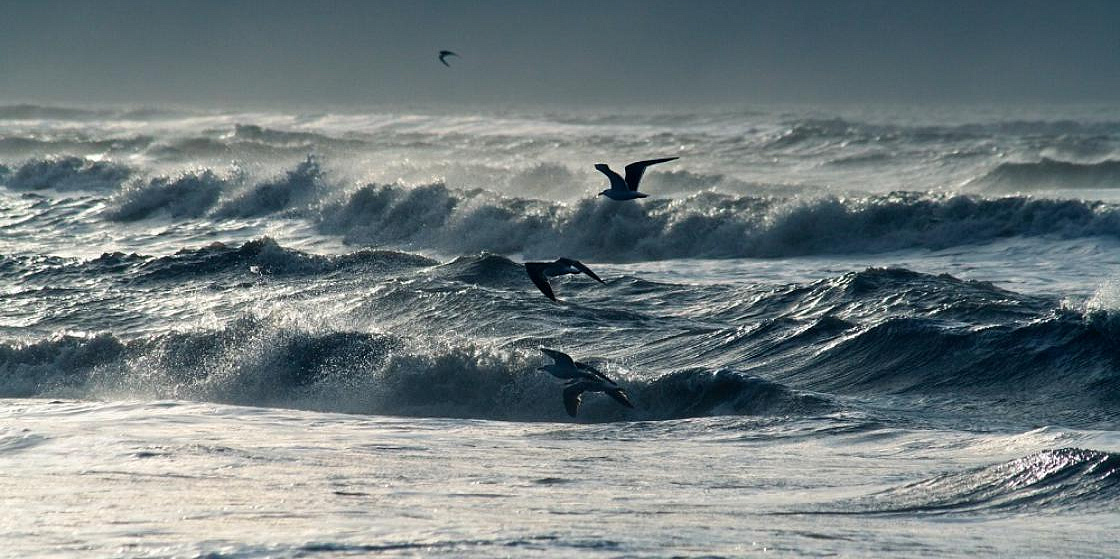
Photo: Deshevukh Dmitriy/GeoPhoto.ru
Barents Euro-Arctic Council Sets Priorities for Future Work
On 25-26 October 2021, in Tromsø, Norway the 18th Ministerial Meeting of the Barents Euro-Arctic Council (BEAC), an intergovernmental forum for cooperation on issues concerning the Barents region, was held. The Joint Declaration based on the meeting results was signed by the BEAC permanent members (Russia, Denmark, Island, Norway, Finland, Sweden and the European Commission) to outline the Council’s key directions in such fields as economy, transportation, logistics, infrastructure, environment and indigenous affairs.
The BEAC chairmanship was handed over from Norway to Finland for the next two years. In turn, Russia will assume the BEAC Chairmanship in 2023-2025. “Russian chairmanship will focus on improving the relevance of both Councils’ practical activities and making them project-oriented with an emphasis on socioeconomic development and a higher quality of life in the shared North,“ said Russian Foreign Minister Sergei Lavrov who took part in the session.
In 2021-2023, Russia holds the chairmanship of the Arctic Council -- an international forum bringing together Canada, Russia, Denmark, Island, Norway, Finland, US and Sweden along with indigenous NGOs and associations.
The chairmanship of the Barents Regional Council, an organization uniting 13 Arctic provinces of Russia, Sweden, Finland and Norway and a representative of the indigenous peoples, also rotated. The Swedish Vasterbotten Province passed the baton in the Barents Regional Council to the Nenets Autonomous District. As stated by Yuri Bezdudny, the Governor of the Nenets District, in the course of its two-year presidency, the region will focus on promoting connectivity, cross-border mobility, economic diversification, as well as improving the quality of life and developing the human capital.
One of the session’s key achievements was the adoption of an Action Plan on Climate Change covering the period from 2021 until 2025. Its purpose is to ensure that climate is factored into all BEAC projects.
The decision to create the Barents financial mechanism for funding projects implemented by BEAC working groups is another important step made at this session. The mechanism will be used to allocate startup capital for low-budget regional cross-border projects, which will help revitalize the economic activity in the Barents region. The Barents financial mechanism will be launched in 2022.
The session of the Barents Regional Youth Council, a youth forum established under the auspices of the BEAC in 2018, was held on the margins of the event. Young representatives of the BEAC member states’ Northern regions talked about their joint projects and discussed challenges facing the present-day youth in the High North.
Arctic Today is a column by PORA CEO Alexander Stotskiy analyzing major international, national and regional events and trends in the Arctic.
The BEAC chairmanship was handed over from Norway to Finland for the next two years. In turn, Russia will assume the BEAC Chairmanship in 2023-2025. “Russian chairmanship will focus on improving the relevance of both Councils’ practical activities and making them project-oriented with an emphasis on socioeconomic development and a higher quality of life in the shared North,“ said Russian Foreign Minister Sergei Lavrov who took part in the session.
In 2021-2023, Russia holds the chairmanship of the Arctic Council -- an international forum bringing together Canada, Russia, Denmark, Island, Norway, Finland, US and Sweden along with indigenous NGOs and associations.
The chairmanship of the Barents Regional Council, an organization uniting 13 Arctic provinces of Russia, Sweden, Finland and Norway and a representative of the indigenous peoples, also rotated. The Swedish Vasterbotten Province passed the baton in the Barents Regional Council to the Nenets Autonomous District. As stated by Yuri Bezdudny, the Governor of the Nenets District, in the course of its two-year presidency, the region will focus on promoting connectivity, cross-border mobility, economic diversification, as well as improving the quality of life and developing the human capital.
One of the session’s key achievements was the adoption of an Action Plan on Climate Change covering the period from 2021 until 2025. Its purpose is to ensure that climate is factored into all BEAC projects.
The decision to create the Barents financial mechanism for funding projects implemented by BEAC working groups is another important step made at this session. The mechanism will be used to allocate startup capital for low-budget regional cross-border projects, which will help revitalize the economic activity in the Barents region. The Barents financial mechanism will be launched in 2022.
The session of the Barents Regional Youth Council, a youth forum established under the auspices of the BEAC in 2018, was held on the margins of the event. Young representatives of the BEAC member states’ Northern regions talked about their joint projects and discussed challenges facing the present-day youth in the High North.
Arctic Today is a column by PORA CEO Alexander Stotskiy analyzing major international, national and regional events and trends in the Arctic.
29 October 2021




